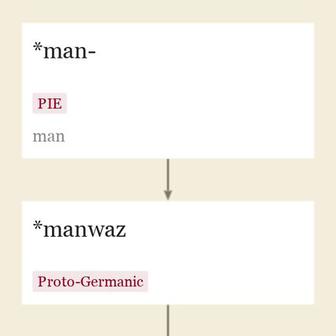workman n.
Old English weorcmsnn; see work (n.) + man (n.). Similar formation in Dutch werkman, Old Norse verkmaðr.
Entries linking to workman
Old English weorc, worc "
The meaning "
Work of art attested by 1774 as "
Proverbial expression many hands make light work is from c. 1300. To have (one's) work cut out for one is from 1610s; to have it prepared and prescribed, hence, to have all one can handle. Work in progress is from 1930 in a general sense, earlier as a specific term in accountancy and parliamentary procedure.
Work is less boring than amusing oneself. [Baudelaire, "Mon Coeur mis a nu," 1862]

"
Sometimes connected to root *men- (1) "
Specific sense of "
Man also was in Old English as an indefinite pronoun, "
As "
Man-about-town "
So I am as he that seythe, 'Come hyddr John, my man.' [1473]
MANTRAP, a woman's commodity. [Grose, "Dictionary of the Vulgar Tongue," London, 1785]
At the kinges court, my brother, Ech man for himself. [Chaucer, "Knight's Tale," c. 1386]
updated on April 08, 2014